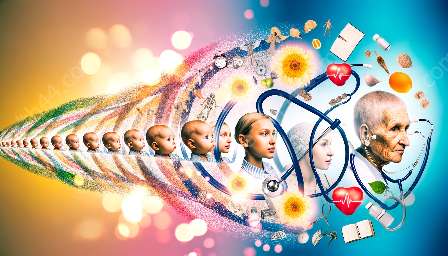Developmental disorders and disabilities have a significant impact on individuals across the lifespan. This comprehensive guide explores their causes, effects, and the importance of health education and medical training in providing support and care. From early childhood to old age, understanding these conditions is essential for promoting holistic wellbeing.
Understanding Developmental Disorders and Disabilities
Developmental disorders and disabilities encompass a wide range of conditions that affect an individual's physical, cognitive, emotional, and social development. These challenges can manifest in early childhood, adolescence, or adulthood, and can have lifelong implications for an individual's quality of life.
Causes and Types
The causes of developmental disorders and disabilities are multifaceted and can include genetic factors, prenatal exposure to harmful substances, birth complications, neurological conditions, and environmental influences. These conditions encompass a diverse array of disorders, including autism spectrum disorders, attention-deficit/hyperactivity disorder (ADHD), intellectual disabilities, and sensory processing disorders, among others.
Impact on Lifespan Development
Throughout the lifespan, developmental disorders and disabilities can present unique challenges that affect individuals in various ways. In childhood, these conditions may impact learning, social interaction, and emotional regulation. In adolescence, they can influence academic performance, self-esteem, and the development of independent living skills. In adulthood and old age, these challenges can affect employment opportunities, social inclusion, and access to healthcare and support services.
Health Education and Medical Training: Key Considerations
Health education and medical training play essential roles in addressing the needs of individuals with developmental disorders and disabilities. By increasing awareness, promoting early intervention, and enhancing the skills of healthcare professionals, these fields contribute to improved outcomes and the overall well-being of affected individuals.
Early Identification and Intervention
Health education initiatives focus on raising awareness about the early signs of developmental disorders and disabilities, empowering parents, educators, and healthcare providers to recognize these conditions promptly. Early intervention programs are crucial for promoting optimal developmental outcomes and minimizing the long-term impact of these challenges.
Training for Healthcare Professionals
Medical training programs are instrumental in equipping healthcare professionals with the knowledge and skills necessary to provide comprehensive care for individuals with developmental disorders and disabilities. This includes understanding the unique needs of these individuals, implementing evidence-based interventions, and fostering a supportive and inclusive healthcare environment.
Promoting Holistic Well-Being
Supporting individuals with developmental disorders and disabilities requires a holistic approach that addresses their physical, psychological, and social needs. Health education and medical training emphasize the importance of interdisciplinary collaboration, personalized care plans, and ongoing support to enhance the overall well-being of affected individuals.
Advocacy and Community Engagement
Health education initiatives advocate for the rights and inclusion of individuals with developmental disorders and disabilities within their communities. By fostering understanding, empathy, and supportive environments, these efforts contribute to creating inclusive societies that embrace diversity and promote equal opportunities for all.
Empowering Individuals and Families
Empowerment is a key focus of health education and medical training, as it seeks to provide individuals and families with the knowledge, resources, and support they need to navigate the challenges associated with developmental disorders and disabilities. By promoting self-advocacy, resilience, and access to community services, these efforts empower individuals to lead fulfilling lives and actively participate in society.
Conclusion
Developmental disorders and disabilities present complex challenges that extend across the lifespan, requiring a multidimensional approach that integrates health education, medical training, and advocacy efforts. By understanding the causes and impact of these conditions and promoting holistic support and empowerment, we can cultivate inclusive societies that embrace diversity and prioritize the well-being of every individual.


